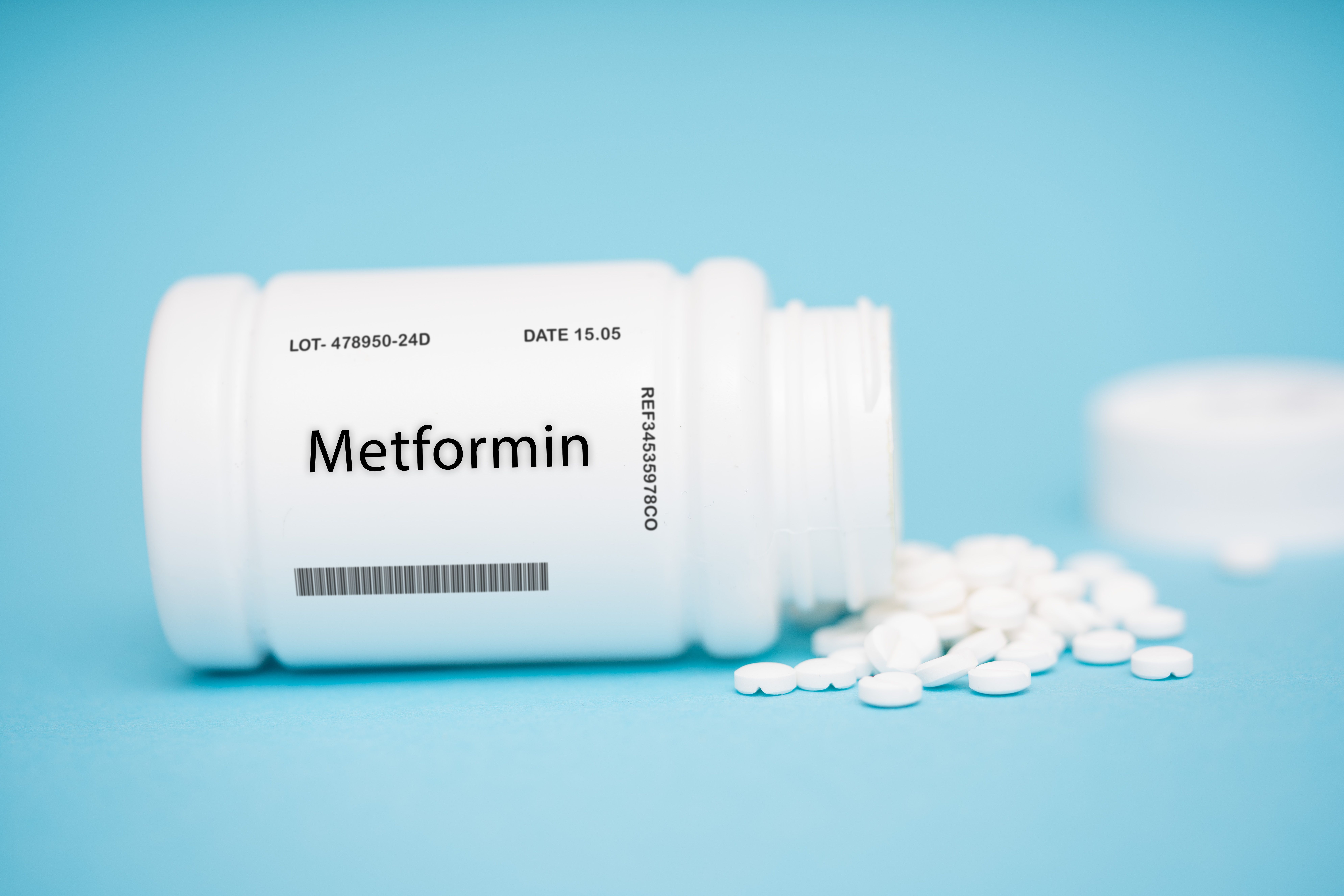- Center on Health Equity & Access
- Clinical
- Health Care Cost
- Health Care Delivery
- Insurance
- Policy
- Technology
- Value-Based Care
Metformin May Boost PFS in Patients With Metastatic Colorectal Cancer, Study Finds
Metformin use may enhance progression-free survival (PFS) in patients receiving first-line systemic therapy for patients with metastatic colorectal cancer.
Metformin use was associated with a significant improvement in progression-free survival (PFS) during first-line treatment with 5-fluorouracil-based chemotherapy in patients with metastatic colorectal cancer (mCRC), according to one study.1 Although no overall survival (OS) benefit was observed, the findings suggest a potential role for metformin as an adjunct to systemic therapy in mCRC.

The single-center retrospective cohort study is published in In Vivo.
“In our study, we aimed to investigate the effect of metformin use on survival and prognosis in patients with mCRC with the hypothesis that liver kinase B1-related AMPK [AMP-activated protein kinase] activation and mTOR [mammalian Target of Rapamycin] inhibition can increase the response to first-line systemic treatment.”
A growing body of evidence suggests that metformin may reduce the risk of developing various cancers, including CRC.2 Proposed mechanisms include inhibition of tumor cell proliferation, activation of AMP-activated protein kinase, and reduction of insulin and glucose levels, all of which may contribute to a less favorable environment for tumor growth. These findings support the investigation of metformin as a potential chemopreventive and therapeutic agent in CRC.
The cohort study evaluated adult patients aged 18 years and older with mCRC who had received first-line systemic therapy at a single academic oncology clinic between January 2010 and December 2022.1 Eligible patients were treated with 5-fluorouracil-based chemotherapy combined with either anti-epidermal growth factor receptor (EGFR) therapy for RAS wild-type tumors or anti-vascular endothelial growth factor therapy for both RAS-mutant and wild-type tumors.
Patients were excluded if they lacked a pathological diagnosis of mCRC, had other malignancies, experienced recurrence within 6 months of adjuvant therapy, or had missing data on comorbidities, drug use, or metastatic sites. Collected variables included age, primary tumor sidedness, comorbidities, metastatic sites, treatment regimens, time to progression, and OS.
Among the 134 patients included in the study, the median age was 59.5 years, 89 were male, and 23.9% had a diagnosis of diabetes. Use of metformin was associated with a statistically significant improvement in PFS, with a median PFS of 14.0 months compared with 9.9 months in nonusers (P = .04). However, no significant difference was observed in OS, with median OS of 20.7 months in metformin users compared with 19.5 months in nonusers (P = .76).
Furthermore, the analysis identified metformin usage (HR, 0.62; P = .04) and anti-EGFR therapy (HR, 0.54; P < .01) as factors significantly associated with improved PFS.
However, the researchers noted several study limitations. First, its retrospective design limited the ability to establish causal relationships. Additionally, all patients who used metformin also had diabetes, a condition that may independently influence survival outcomes and treatment response. The relatively small sample size further limited the statistical power and generalizability of the findings. Moreover, the study population was restricted to patients receiving biological agents in combination with 5-fluorouracil, excluding those on other treatment regimens.
Despite these limitations, the researchers believe the study suggests that metformin may help to increase survival in patients with mCRC.
“Although diabetes leads to a poorer prognosis for colorectal cancer, metformin also positively affected the prognosis in these patients,” wrote the researchers. “Further studies are needed to identify the potential role of metformin use in mCRC treatment and confirm our results.”
References
1. Erdat EC, Yalciner M, Geris Y, et al. The effect of metformin usage in patients with metastatic colorectal cancer receiving first-line systemic therapy. In Vivo. 2025;39(4):2349-2356. doi:10.21873/invivo.14032
2. Higurashi T, Nakajima A. Metformin and colorectal cancer. Front Endocrinol (Lausanne). 2018;9:622. doi:10.3389/fendo.2018.00622
